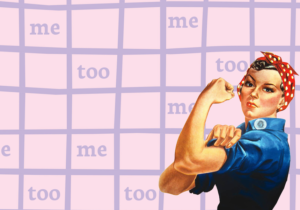Streaming services like Spotify and Rdio erode musicians’ ability to support themselves and sustain their musical careers. In order to earn a US monthly minimum wage, an artist would need to sell 143 self-pressed CD’s a month, 155 CD’s on CD Baby, 1,229 album downloads on iTunes, or get 4,053,110 track plays on Spotify. Lady Gaga is rumoured to have made a mere $167 from over a million plays of her song “Poker Face”, the most popular song on Spotify during that period of time. If Lady Gaga, the number one artist on Spotify, can’t earn minimum wage from streaming, then who can?
Feeling like they’re receiving the shaft, many artists have elected to remove their music from these services entirely, most notably Sir Paul McCartney. Swedish artist Magnus Uggla went as far as to say “I’d rather be raped by The Pirate Bay”.
It’s said that the industry is presently in a transitional hump and it’ll take some time for this new distribution paradigm to be profitable for all parties. True as that may be, having those with the fewest resources available to them bear the burden of an immature business model is clearly unjust. The risks inherent in catalyzing a new distribution paradigm should be borne by the businesses angling to become pillars of the new model.
It’s commonplace for web startups to exist for years on venture capital before they’re able to monetize. Instagram notably went from a being a startup sustained by venture capital with no revenue to be being purchased by Facebook for $1B. Twitter has yet to be profitable. Yet nowhere in the picture are artists, sometimes living day job pay cheque to pay cheque, being expected to bear the risk of a new business model that has yet to be profitable.
Why is it like this?
If artists make next to no money from services like Spotify and Rdio, then why are these business models being put in place, and why are they seemingly working (for everyone but the artists)?
You want it to be this way
By and large, consumers don’t want to pay very much for a digital experience. For musicians to be adequately compensated for their work, subscription rates would have to be higher, and most consumers are unwilling, or perceived to be unwilling, to pay more.
It’s beneficial to the service.
Commoditizing music benefits distributors greatly. Music is the product, and if prices are lower, profits are higher.
But why is this worse than torrenting?
I hear what you’re saying, musicians aren’t being paid very much by these services, but something has to be better than nothing. Paying must be better than not paying. Right?
Though that would seem to be the case, this isn’t necessarily true. Whereas an underlying feeling of guilt commonly accompanies torrenting somebody’s album, people don’t feel that when they pay for a subscription service. By paying their monthly fees, consumers feel as though they’re doing their part and helping to compensate musicians, even though the amount of money finding its way to musicians is negligible.
In contrast, those that torrent albums will frequently use torrenting as a way to preview an album, and will frequently purchase that album if they find themselves enjoying it. A study from Ipsos MORI found that those who share files spend 75 percent more on music than those that don’t.
Another common practice amongst file sharers is to see an artist you’ve been listening to live when they come to town. Knowing they’ve been enjoying the artist’s album for free, the file sharer commonly feels behooved to financially support the artist in this way. This isn’t necessarily seen amongst subscribers of streaming services as they’ll feel like they’re already doing their part with their monthly fees, even though those fees don’t go to the artists in a meaningful way.









